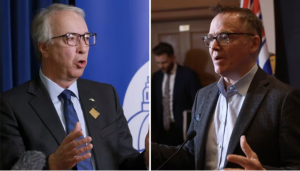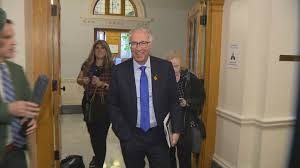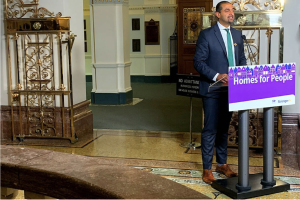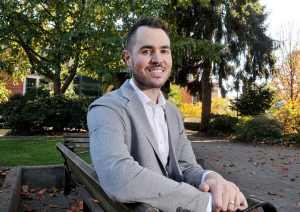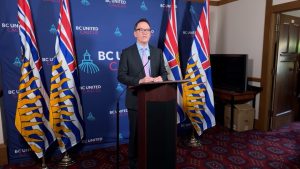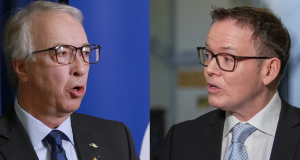Prof. Gerald Baier discusses Mayor Brenda Locke’s attempts to keep the RCMP in Surrey
Professor Gerald Baier says the first-past-the-poll electoral system combined with low voter turnout can be problematic for politicians like Mayor Locke to take the high road over huge policy shifts because “you can make a claim of legitimacy, but can you make a democratic … mandate claim that this is something overwhelmingly wanted by people?”
Prof. Stewart Prest explains why the B.C. Conservatives rejected the non-competition agreement
Professor Stewart Prest says the possibility of the B.C. Conservatives “finishing close second in the polls” means they have little to gain from an election deal compared to the B.C. United.
Prof. Matthew Wright discusses the rise of anti-immigration sentiments in the United States
Professor Matthew Wright suggests that the United States’ anti-immigrant shift is caused by a renewed public desire for “law-and-order” policies prompted by the pandemic-era rise in crime and the Biden-era increase in border-crossing attempts.
Prof. Gerald Baier comments on the B.C. Conservatives recent popularity
Professor Gerald Baier says the trend of the B.C. Conservatives owning the centre right continues proving the trend is not just a blip.
Prof. Kathryn Harrison on Pierre Poilievre’s campaign to abolish carbon pricing
Professor Kathryn Harrison says that Poilievre’s campaign argues that “Canadians are mainly concerned about the cost of living, and that by tackling it, climate problems will become less important” but this nostalgic language is incompatible with today’s reality.
Prof. Stewart Prest on NDP’s vulnerability during the spring session
Professor Stewart Prest explains that the B.C. NDP spent the spring session playing defence and many of their “bold proclamations” have not had time to make an impact.
Prof. Stewart Prest comments on why Coquitlam’s mayor was rumoured to be leader of a B.C. United and Conservative merger
Professor Stewart Prest says Port Coquitlam Mayor Brad West’s popularity stems from his ability to operate in an “open space” and not be restricted by a political party. This appeals to voters tired of “polarized rhetorical debate.”
Prof. Stewart Prest says a merger between B.C. United and B.C. Conservatives is unlikely
Professor Stewart Prest says a formal merger between the B.C. United and B.C. Conservatives would be difficult as each party has tried to “occupy quite distinct spaces on the political spectrum,” but informal co-operation may make competing with the NDP easier.
Prof. Gerald Baier explains the potential merger of B.C. United and B.C. Conservatives
Professor Gerald Baier says that it is “a well-known historical fact that the centre-right can’t win as two parties in B.C.”
Prof. Gerald Baier discusses the difficulties of a merger between B.C. United and B.C. Conservatives
Professor Gerald Baier says a merger between the B.C. United and the B.C. Conservatives would be difficult within the five months before the October election given the uncertainties of who would lead the new party and its name.

